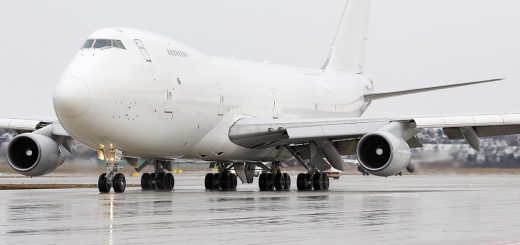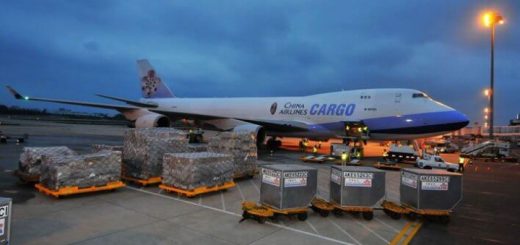Air freight Safety: How to track Air freight Shipments
Introduction
Air freight is an essential mode of transportation for goods worldwide, providing faster delivery times and broader reach compared to other transportation methods. However, with the benefits of air freight come the risks, such as loss, damage, or cargo theft, as well as potential safety hazards. Therefore, tracking air freight shipments is crucial to ensure their safety and timely delivery.
Within logistics operations, it is crucial to have a system that ensures efficient tracking for all shipped goods and commodities. This article intends to illuminate the importance of reliable tracking mechanisms within the context of air freights.
We plan to analyze different types of technology used for monitoring cargo during transportation; furthermore, scrutinizing security protocols enforced by regulatory bodies globally. Our discussion will include a comprehensive exploration on how working with leading-edge freight forwarding companies can help improve your ability to track and manage cargo from loading until delivery at destination.
Tracking air freight shipments allows for real-time visibility and monitoring of the shipment’s progress, enabling businesses and customers to make informed decisions regarding their supply chain operations. From providing real-time updates on shipment location and estimated delivery time to identifying potential delays or issues, air freight tracking offers valuable insights for all parties involved.
Maintaining compliance with prescribed safety measures and regulations established by the IATA, TSA, and other governing authorities is critical in overseeing air freight deliveries effectively. Failing to track air freight shipments may lead to penalties, fines, or even the confiscation of the shipment.
The Importance of Air Freight Tracking
Tracking air freight shipments is essential for several reasons. One significant advantage that this technology offers is the real-time tracking of shipments. The extent of clarity afforded enables enterprises and customers alike to make knowledgeable decisions concerning their supply chain operations.
In addition, real-time updates on the shipment location and estimated delivery time enable businesses to plan their production and inventory management more efficiently.
In contrast, customers can strategize and organize their operations by considering the anticipated delivery time, circumventing any prospective setbacks. Secondly, tracking air freight shipments helps businesses identify potential issues or delays early on and take appropriate action to resolve them. For example, if there is a shipment delay due to weather conditions or customs clearance. In that case, the shipper can be notified immediately and take action to re-route the shipment or adjust their production plan accordingly. This minimizes the impact of delays on the supply chain and reduces the risk of stockouts or production downtime.
Regularly monitoring air freight shipments is crucial to ensuring compliance with rules and safety requirements established by authorities such as the Transportation Security Administration (TSA) and International Air Transport Association (IATA). These regulations require the tracking and monitoring of air freight shipments to ensure their safety and prevent potential security threats. Non-compliance with these regulations may bring about adverse outcomes that involve penalties, fines or even the forfeiture of the shipment.
Methods for Air Freight Tracking
There are various methods for tracking air freight shipments, each with its advantages and limitations. Below are some of the most common methods for air freight tracking:
- Electronic Data Interchange (EDI): EDI is a system for electronically exchanging business documents, such as purchase orders, invoices, and shipment details, between different parties involved in the supply chain. EDI allows for real-time tracking of air freight shipments, providing visibility into the shipment’s progress and status updates.
- Radio Frequency Identification (RFID): RFID uses radio waves to identify and track objects, such as cargo containers or pallets, equipped with RFID tags. RFID tags can be viewed from a distance, allowing for real-time tracking of air freight shipments as they move through the supply chain.
- Global Positioning System (GPS): GPS uses satellites to determine the location of a device or object equipped with a GPS receiver. GPS can be used to track air freight shipments in real time, providing updates on the shipment’s location and estimated delivery time.
- Flight Manifests: Flight manifest documents that list all the cargo on a particular flight, along with information such as the weight, dimensions, and destination of each shipment. By accessing the flight manifest, businesses can track their air freight shipments and get updates on their progress.
- Air Waybills: An air waybill is a contractual document that serves as a contract between the shipper and the carrier for air cargo transportation. It includes information such as the shipment’s origin and destination, the cargo’s weight and dimensions, and the agreed-upon terms and conditions of the transportation. Air waybills can be used to track air freight shipments and get updates on their progress.
Best Practices for Air Freight Tracking
Businesses should follow best practices for air freight tracking to ensure the safe and timely delivery of air freight shipments. Below are some of the best practices for air freight tracking:
- Choose a reliable tracking method: As discussed earlier, there are several methods for tracking air freight shipments, each with its benefits and limitations. Businesses should choose a reliable tracking method that provides real-time updates and meets their needs and budget.
- Provide accurate shipment details: Businesses should provide complete and precise shipment details, including the shipment’s origin, destination, weight, dimensions, and contents, to ensure accurate tracking of air freight shipments,
- Monitor shipment progress: Businesses should monitor the progress of their air freight shipments and be aware of any delays or issues that may arise. Real-time tracking and monitoring allow businesses to take appropriate action to resolve problems and minimize the impact on their supply chain operations.
- Communicate with carriers and customers: Businesses should communicate regularly with carriers and customers regarding the status of their air freight shipments. This helps build trust and transparency in the supply chain and ensures that everyone is aware of potential delays or issues.
- Comply with regulations and safety standards: As discussed earlier, compliance with rules and standards is essential for the safe and timely delivery of air freight shipments. Businesses should know and comply with all applicable regulations and safety standards to avoid penalties or fines.
Conclusion
Air freight tracking is an essential aspect of supply chain management, providing businesses with real-time updates and visibility into the progress of their shipments. By tracking air freight shipments, businesses can ensure the safe and timely delivery of their goods, build trust and transparency in the supply chain, and minimize the impact of any delays or issues.
Several methods for tracking air freight shipments include EDI, RFID, GPS, flight manifests, and air waybills. Businesses should choose the method that best fits their needs and budget to ensure reliable and accurate tracking of their air freight shipments.
Businesses should follow best practices for air freight tracking, including providing accurate shipment details, monitoring shipment progress, communicating with carriers and customers, and complying with regulations and safety standards to ensure the safe and timely delivery of air freight shipments.
Overall, air freight tracking plays a critical role in the success of businesses that rely on air freight shipments for their supply chain operations. By following best practices and using reliable tracking methods, businesses can ensure the safe and efficient transportation of their goods, contributing to the growth and success of their business.
At Fortune Global, we understand the importance of tracking your air freight shipments. Our team of experienced and dedicated professionals can help you navigate the complexities of monitoring your air shipping and ensure your shipment is delivered on time and within budget. Contact us today at www.fglobalshipping.com to learn more about our air freight services and how we can help you with your shipping needs.



